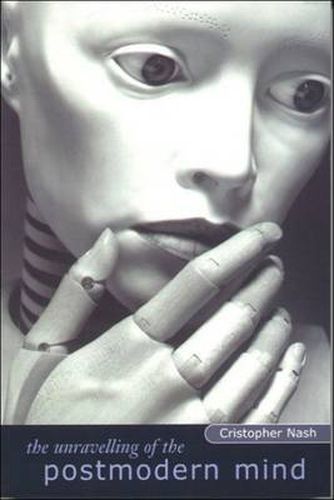Readings Newsletter
Become a Readings Member to make your shopping experience even easier.
Sign in or sign up for free!
You’re not far away from qualifying for FREE standard shipping within Australia
You’ve qualified for FREE standard shipping within Australia
The cart is loading…






Can the postmodern decide things? Can it tolerate democracy? Can it avoid inertia? Who stands to gain from postmodernity? In this work, Cristopher Nash sets out these questions and more, taking the view that the entire body of writing on postmodernity - including its arts, literature, media and critical philosophy - needs to be reread in the light of the unique psychological character and motives that now appear to mould and drive its culture. Challenging our habit of confusing the vast rigorous culture of postmodernity with the theories of postmodernism , he argues for a new way of seeing things. Instead of looking at the world through the filter of philosophical abstraction, this book is about affect, and what it feels like to be postmodern. Casting a wide net - beginning with a radical rereading of the felt human needs fulfilled by philosophical indeterminist and pluralist thinking, and tracking similar impulses through the media and literature, leisure cultures, domestic, commercial, industrial, architectural and urban design and fashion, the arts, tourism, pop and rock music, drug culture and the cultures of cyberspace, virtual reality, cyberorganics and cyberwar, genetic engineering and the proliferation of new modes of birth and death - it seeks to catch the sound of the postmodern phenomenon in its greater clamour.
$9.00 standard shipping within Australia
FREE standard shipping within Australia for orders over $100.00
Express & International shipping calculated at checkout
Can the postmodern decide things? Can it tolerate democracy? Can it avoid inertia? Who stands to gain from postmodernity? In this work, Cristopher Nash sets out these questions and more, taking the view that the entire body of writing on postmodernity - including its arts, literature, media and critical philosophy - needs to be reread in the light of the unique psychological character and motives that now appear to mould and drive its culture. Challenging our habit of confusing the vast rigorous culture of postmodernity with the theories of postmodernism , he argues for a new way of seeing things. Instead of looking at the world through the filter of philosophical abstraction, this book is about affect, and what it feels like to be postmodern. Casting a wide net - beginning with a radical rereading of the felt human needs fulfilled by philosophical indeterminist and pluralist thinking, and tracking similar impulses through the media and literature, leisure cultures, domestic, commercial, industrial, architectural and urban design and fashion, the arts, tourism, pop and rock music, drug culture and the cultures of cyberspace, virtual reality, cyberorganics and cyberwar, genetic engineering and the proliferation of new modes of birth and death - it seeks to catch the sound of the postmodern phenomenon in its greater clamour.